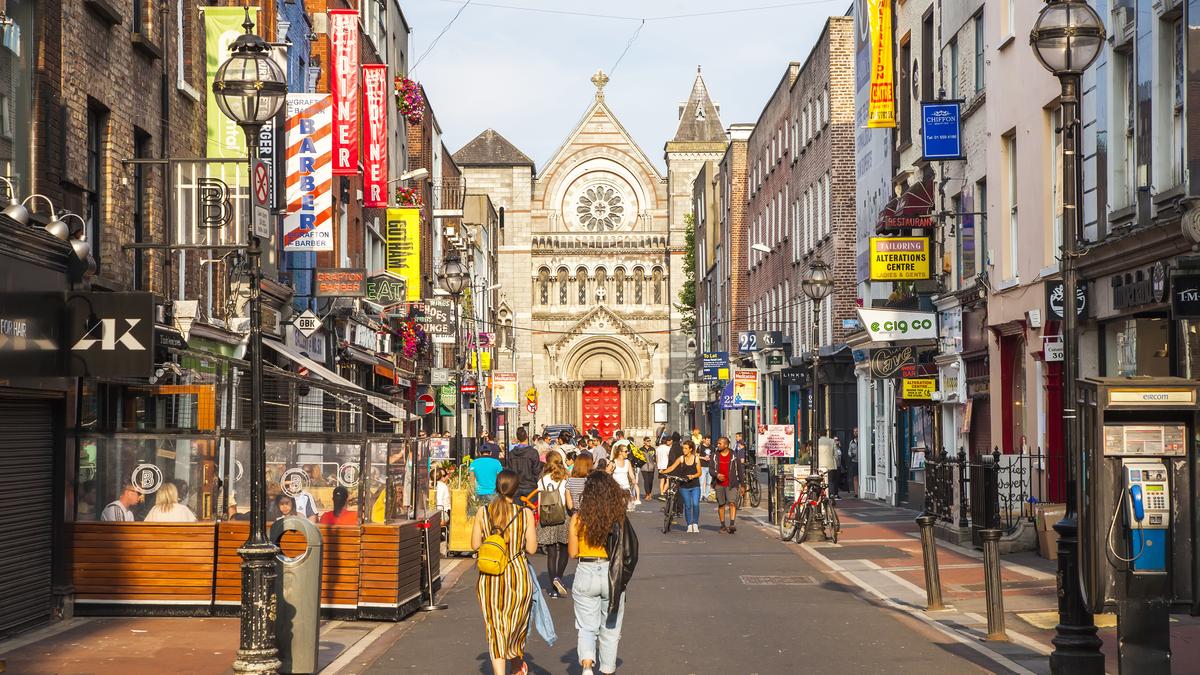 |
|
The recent advisory issued by the Indian Embassy in Ireland, urging Indian citizens to exercise “reasonable precautions” amidst a growing number of reported racist attacks, paints a disturbing picture of the challenges faced by foreign nationals in the country. This development is not an isolated incident but rather part of a broader trend of rising xenophobia and prejudice directed towards immigrants and minorities in various parts of the world. The core issue at play here is the inherent vulnerability that immigrants often face, particularly when they are perceived as “outsiders” or are visibly different from the majority population. This vulnerability can stem from various factors, including language barriers, cultural misunderstandings, lack of strong social support networks, and the potential for economic competition, all of which can contribute to heightened tensions and a greater risk of discrimination and violence. The advisory itself highlights the severity of the situation. The fact that the Indian Embassy felt compelled to issue such a warning underscores the gravity of the threat and the potential for serious harm to Indian citizens residing in Ireland. The specific recommendation to avoid deserted areas, especially during odd hours, suggests that these attacks are not random acts of violence but rather targeted incidents driven by prejudice and hostility. The reference to an Indian national who reported an attack on social media further emphasizes the urgency of the situation and the need for both the Indian and Irish authorities to take decisive action to address the problem. The assault on Dr. Santosh Yadav, a Multimodal AI Scientist, serves as a stark reminder that even highly skilled and educated individuals are not immune to the dangers of racism and xenophobia. The fact that Dr. Yadav sustained a fractured cheekbone and other injuries highlights the physical and emotional toll that these attacks can inflict on victims. Dr. Yadav’s statement that racist attacks on Indian men and other minorities are surging across Dublin is particularly alarming and suggests that the problem is not limited to isolated incidents but rather a widespread phenomenon. This underscores the need for a comprehensive approach to address the root causes of racism and xenophobia in Ireland.
The response of the Indian Ambassador, Akhilesh Mishra, is also noteworthy. His expression of “widespread concern and fear” among the 90,000-strong Indian community in Ireland indicates the far-reaching impact of these attacks and the sense of insecurity that they have created. The ambassador’s assurance that the Indian mission is in touch with the wider Indian community and that the well-being of the Indian community is a matter of high priority to the embassy and the Ministry of External Affairs is crucial in reassuring concerned citizens and providing them with support. His statement that the matter has been taken up with the relevant Irish authorities in Dublin and also in Delhi demonstrates the seriousness with which the Indian government is treating the issue and the commitment to working with the Irish authorities to find a solution. The underlying causes of these racist attacks are complex and multifaceted. They can be attributed to a variety of factors, including economic anxieties, cultural clashes, historical prejudices, and the rise of far-right extremist groups. In times of economic hardship, immigrants are often scapegoated for job losses and other economic problems, leading to resentment and hostility. Cultural differences can also create misunderstandings and tensions, particularly if there is a lack of integration and communication between different communities. Historical prejudices, such as those based on race, ethnicity, or religion, can also contribute to discrimination and violence against minorities. The rise of far-right extremist groups, which often promote hate speech and incite violence against immigrants and minorities, is also a significant concern. Addressing the issue of racism and xenophobia in Ireland requires a multi-pronged approach that involves government action, community engagement, and individual responsibility.
The Irish government has a responsibility to investigate these attacks thoroughly and bring the perpetrators to justice. This includes ensuring that law enforcement agencies are properly trained to recognize and respond to hate crimes and that victims of racist attacks receive adequate support and protection. The government should also implement policies to promote integration and cultural understanding, such as language classes, cultural exchange programs, and anti-discrimination campaigns. Community engagement is also essential. This involves bringing together people from different backgrounds to build relationships and understanding. Community leaders, religious organizations, and local businesses can play a vital role in fostering a welcoming and inclusive environment for immigrants and minorities. Individuals also have a responsibility to challenge prejudice and discrimination wherever they see it. This includes speaking out against racist remarks, supporting anti-racism initiatives, and educating themselves about different cultures and perspectives. It is crucial to create a society where everyone feels safe, respected, and valued, regardless of their origin or background. The Indian Embassy's advisory serves as a wake-up call, highlighting the urgent need to address the issue of racism and xenophobia in Ireland. By taking proactive steps to protect its citizens, the embassy is sending a clear message that it takes the safety and well-being of its community seriously. However, the ultimate responsibility for ensuring the safety and security of all residents lies with the Irish government and society as a whole. Only through a concerted effort to combat prejudice, promote integration, and uphold the principles of equality and justice can Ireland create a truly inclusive and welcoming society for all.
